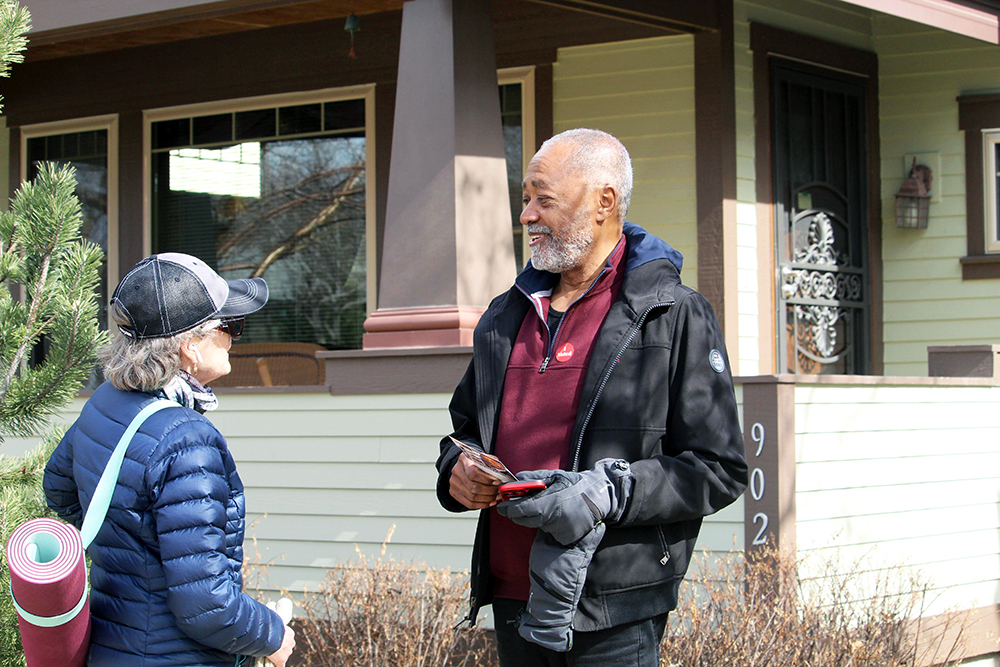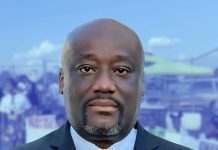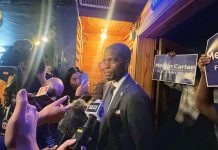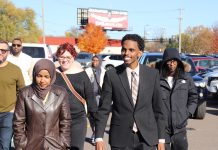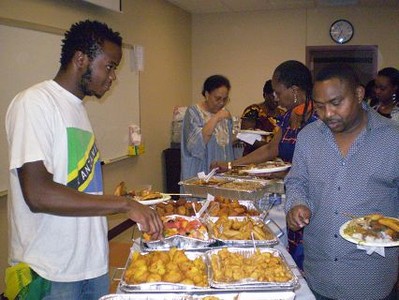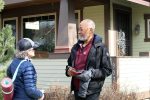
I knew there would be hardships when I immigrated to the United States alone, with $87 dollars in my pocket. There was no illusion that my new home was perfect. However, I knew that I was setting a course for opportunities that were unavailable to a low-income student in post-colonial Jamaica. America was a land of possibilities for me, but I also saw it as a land that had come to recognize its own possibilities. Today, as I run for Congress in Minnesota’s Fifth District Democratic primary on Aug. 13, my belief in the ongoing perfection of our union has only grown stronger.
I arrived in New York City after the Civil Rights Movement to study design at Pratt Institute. I labored full-time at low-wage jobs by night while attending school full-time during the day. My immigration status prevented me from working, so my labor and wages were often undocumented and exploited by those who knew I had little legal recourse. Still, I remained inspired by a country reckoning with racial justice and equal opportunity. Those changes were achieved by the leadership of African Americans like Martin Luther King Jr., Shirley Chisholm, John Lewis, and their allies, who, out of great disadvantage, believed in a better future. They had the courage to change what they could not accept.
As I embarked on my career as a toy designer and inventor, I was always the first black person ever at my level in the history of each company and always the only Black department head. I made a pledge in college that I would always live in the most challenged part of my city. I committed to placing myself where the greatest need and opportunity to give back existed, continuing the work of those who opened doors for me. While I was advancing in my career, I was living and working shoulder-to-shoulder with church and community leaders to restore neighborhoods that had been decimated by white and middle-class flight.
My wife, Sondra, joined me in that pledge. We’ve lived in the Jordan neighborhood of north Minneapolis for more than 27 years. Within the first week, a bullet crashed through the window of our nursery room. Friends encouraged us to move to a safer neighborhood, but we interpreted it as a call to organize.
Sondra and I refused to passively accept inferior conditions, believing it’s our calling to heal the present and serve the future. With our neighbors, we demanded greater safety. We chased drug dealers and their suburban customers off our blocks. We pressured slumlords to improve their rental properties. We led day-long vigils for those slain by gun violence. We pursued innovative strategies for improved K12 outcomes. Eventually, my neighbors urged me to run for public office–and with an army of eager neighbors, we won.
I served three terms on the Minneapolis City Council. As Chair of the Public Safety Committee, I oversaw a drop in annual homicides from 60 to less than 20 and in violent crimes by double digits for six successive years. But safety isn’t just about enforcement. It’s also about restoration, so I co-authored our state’s first “ban-the-box” legislation, which helped those previously convicted of a crime find employment when they were released. I steered tens of millions of dollars to the Northside and transformed our physical environment through improved regulations. I committed myself to superior constituent service, giving constituents tools to hold me accountable because I firmly believe accountability empowers the community.
During my one term on the Minneapolis Public Schools Board, I successfully urged my colleagues to make monthly reports on student performance in an effort to hold ourselves accountable for closing the achievement gap and keeping the main thing, the Main Thing.
Most recently, I served as the CEO of MicroGrants, making modest grants to low-income entrepreneurs to start and grow fledgling businesses. Many of those grants were in the form of used vehicles. When Philando Castile, a school cafeteria worker, was killed after being pulled over for a broken taillight, I created the award-winning Lights On! Program in response. Now, when a driver is pulled over for any broken light, instead of a ticket and confrontation, the officer brings a voucher worth up to $250 for free repairs at a local participating auto shop. with more than 15,000 vouchers redeemed, a once-dreaded encounter has become an opportunity for healing, gratitude, and restoration in 24 states. I believe that our greatest challenges contain their own solutions if we dedicate ourselves to finding them.
As a Jamaican immigrant, I’ve been given the gift of seeing the American commitment to self-improvement in individual lives and in the life of our nation. As a private sector leader, I have seen the power of accountability, ingenuity, and effort. We are on an evolutionary march towards better products but also ever-greater justice, equality and well-being. However, our ongoing transformation will not roll in on the wheels of inevitability. Real progress requires electing leaders who approach public service with a keen perspective of history, a reverence for the honor of leading, and respect for the people who trust us to serve well.
As an immigrant, I understand that many countries feel resigned to inequality and are often powerless to exploitation. I understand, better than most, the role global superpowers play in the existence of those conditions. Most of my siblings still live in Jamaica. The land of my birth struggles with poverty and violence in close proximity to luxury resorts for carefree tourists. Creating a more just world means changing the way our nation engages it. America must strive to be a peacemaker, an agent of opportunity, and a trusted partner to conscientious global leaders.
My journey and the opportunities that I have enjoyed are at the heart of my challenge to Rep. Ilhan Omar. Both my wife and I voted for her when she was elected to Congress in 2018. We believed that her story as an immigrant, refugee, Black, Muslim, young woman, would give her the depth to unite our community and nation across our many differences. Unfortunately, we and so many of the exhausted majority have become disillusioned.
Instead of uniting our district, Omar has pitted us against one another. She exploits our differences, creating us-and-them factions. Stoking that narrow political base has proven an effective strategy for winning an August primary, but it’s made her one of the worst performing Congressional candidates in the country–trailing President Biden by 70,000 votes in 2020, more than any other Democrat. Knowing Democrats have been guaranteed a November win in this district since 1960, she then proceeds to serve herself.
Federal filings show Omar paid her political consultant-turned-husband nearly $3 million in campaign funds. One could easily surmise that she then used her influence to help him gain access to investors for their newly founded California winery and multiple venture capital firms since he has no professional experience in either industry. In her husband’s latest business, it also appears that Omar is using her work on Africa policy to help him access contacts and contracts for aid work, multinational investment, and real estate deals on the continent, as he has no high-level professional experience in international affairs. When asked, she refuses to answer questions from journalists or provide more transparency.
Sadly, Omar has even stood in the way of much-needed solutions, actively working against seasoned political leaders during some of our biggest challenges. While my wife and I rallied members of communities most stricken by gun violence, she sharply criticized Democratic leaders like former President Barack Obama and Minneapolis Mayor Jacob Frey as they cautioned against defunding the police. Omar even voted against President Joe Biden’s signature infrastructure bill that is creating thousands of jobs here in Minnesota, and, as the opioid epidemic ravaged communities across the country, she voted against legislation that would help address the problem.
Our communities–and indeed our democracy–are facing some of our biggest historical challenges. Yet democracy still represents the best chance for our nation to maintain its steady progress and address the problems facing us. It has made our nation a beacon of hope for millions of immigrants like me. It has made us a model for countries across the world struggling with integrating diverse, newly-arriving populations and a corresponding rise in authoritarianism and discrimination against immigrants and ethnic minorities.
I know first-hand the impact that American progress has had on my destiny, and I am keenly committed and focused on continuing that progress as a member of Congress. Too many have sacrificed too much for us to fall victim to leaders who seek public office as a means of advancing their interests instead of those of our community. In order to continue creating a more perfect union, we need leaders who have character, perspective, and a clear vision for progress and unity. I humbly ask for your support and for your vote on or before the August 13th Democratic primary. For more information about our grassroots campaign, visit www.donsmuels.com.
Don Samuels is a candidate for Congress in Minnesota’s Fifth District and the former CEO of MicroGrants. He has also served three terms on the Minneapolis City Council and one term on the Minneapolis school board.
About Don Samuels

